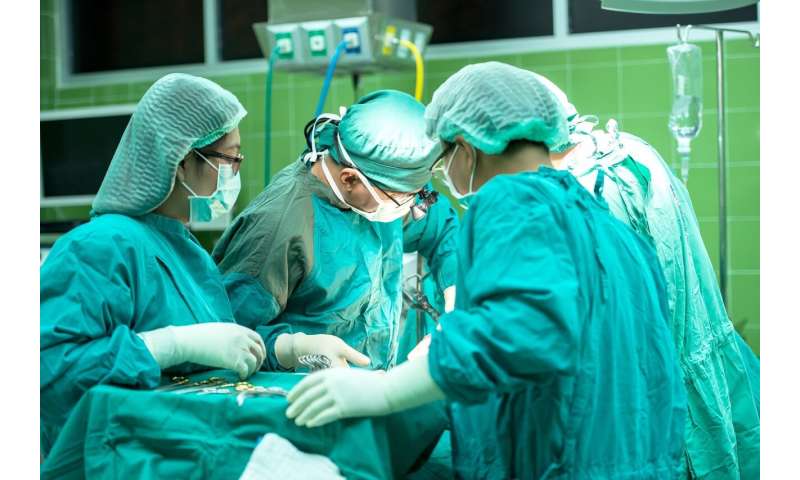
Patients who have had weight loss surgery may not be receiving follow up care from their GPs as recommended in clinical guidelines—according to new research from the University of East Anglia and the University of Birmingham.
Clinical guidelines recommend that patients receive nutritional and weight monitoring annually for life following procedures such as having a gastric bypass.
But a new study published today shows that this does not appear to be happening in most cases—which can lead to patients putting weight back on or developing low levels of vitamins and other nutrients, which can have serious health consequences.
The study was funded by the National Institute for Health Research (NIHR) Clinical Research Network West Midlands.
It is the first study to investigate whether patients receive sufficient long-term routine care and monitoring in primary care following weight loss surgery.
Lead researcher Dr. Helen Parretti, from UEA’s Norwich Medical School, said: “Obesity is a healthcare priority and weight loss surgery, also known as bariatric surgery is an effective treatment.
“It can lead to significant weight loss and improve many obesity-related conditions such as type 2 diabetes or high blood pressure. It is the most cost-effective treatment for severe obesity and it can achieve dramatic weight loss. But it’s not a cure for obesity on its own.
“Patients are supported to make changes to their eating before surgery and these changes need to continue after surgery to help avoid putting weight back on and to keep well. In addition, it is important that patients take lifelong nutritional supplements after their surgery.
“But patients need support to achieve this after their operations and current guidance recommends this is offered by GPs. Without this, weight loss surgery has long-term risks such as nutritional deficiencies and weight regain can occur.
“There is international clinical consensus that long-term follow-up care following bariatric surgery is important to optimize patient outcomes and reduce the risk of preventable harms.
“We wanted to find out whether the nutritional care and weight monitoring delivered by GPs following bariatric surgery meets current clinical guidance.”
The team studied data from 3,137 patients in the UK who had received bariatric surgery between 2000 and 2015.
Types of surgery included gastric bands (where a silicone band is placed around the stomach), gastric bypass (where the top part of the stomach is joined to the small intestine) and sleeve gastrectomy (where some of the stomach is removed).
They looked to see whether patients had received the recommended advice and monitoring after their operations—particularly weight measurement, blood tests to check for nutritional deficiencies, and the prescription of nutritional supplements.
Dr. Parretti said: “We found that in most cases, patients were not receiving the recommended long-term monitoring after they are discharged from bariatric services.
“We found that only around half of the participants were having their weight measured annually. In addition, only around half were having blood tests for nutritional deficiencies commonly seen in general practice, such as anemia. The percentage of participants having blood tests more specific to bariatric surgery was very low—around five percent or less each year.
“The most common deficiency we found was anemia—around 40-50 per cent of those patients who had had a blood test.
“We also found that the proportion of patients with prescriptions for recommended nutritional supplements was low.
Source: Read Full Article
